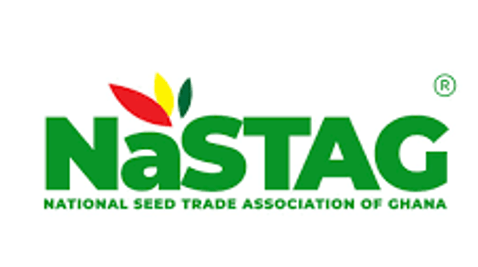By Ernest Bako WUBONTO
The National Seed Trade Association of Ghana (NaSTAG) has urged government to establish comprehensive agriculture enterprises aimed at attracting private sector investment, enhancing mechanised farming and addressing food insecurity in the country.
NaSTAG’s call is part of efforts to address challenges in the agricultural sector, particularly inefficiencies in state subventions to peasant farmers. The association cites issues with fertiliser and input distribution under the erstwhile Akufo-Addo administration’s Planting for Food and Jobs (PFJ) initiative as an example of misallocation and ineffectively utilising resources.
The proposed agricultural enterprises, modelled as state farms, would establish land banks equipped with irrigation systems and advanced technology. These state-acquired farming enclaves could be made available to private sector investors to drive large-scale commercial farming and enhance productivity.
This innovative approach to large-scale commercial farming in clusters, when implemented, will increase efficiency and yield, reduce costs and enhance the agricultural sector’s overall competitiveness.
These proposed agriculture enterprises, according to NaSTAG, must include agro-processing hubs to establish processing facilities that will enable value addition to raw agricultural products, reduce post-harvest losses and create market opportunities; mechanisation centres; seed development and distribution networks; training and capacity building, among others.
NaSTAG president Dr. Amos Rutherford Azinu expressed that the agricultural landscape’s current state in the country – characterised by fragmented and small-scale farming operations – hinder the sector’s potential for growth and ability to feed the local economy, not to mention exports.
He underscored the vital role of large-scale private sector investment in transforming Ghana’s agricultural landscape. By establishing large-scale agricultural enterprises that attract private investors, he noted, government can create a conducive environment for significant investments in crop-farming – boosting production, creating jobs and driving economic growth.
“Ghana’s agricultural sector holds immense potential, but unlocking it requires a concerted effort to modernise farming practices and attract private sector investment – something we have failed to do over the years. Establishing agricultural enterprises can create a sustainable ecosystem that supports farmers, enhances productivity and ensures food security for all Ghanaians,” he said.
Reflecting on past experiences, he said: “Under the PFJ, government provided incentives to smallholder farmers; but in the end, we experienced low productivity and there was no clear record of these farmers’ performance. That is not the way to go. A transformative agricultural economy requires large-scale mechanised farming.
“Fortunately, we have farming enclaves in the country where these land banks can be developed to attract private sector investment and engage the educated youth. With such a system, we can establish a register of all farmers operating within these state-created zones, track their performance and use that as a basis for allocating more land and incentives to help them expand,” he said.
Land bank enclaves
Ghana’s three main farming zones – the southern, middle belt and northern zones – are known for specific types of food crop production. In the southern zone, the Akuse, Asutuare and Kpong enclaves in the Eastern Region are major rice-producing areas. Setting up a state farm enterprise with hundreds of thousands of acres in these areas would attract private investment and enhance large-scale rice production, offering a more efficient alternative to scattered small farms that often lack accountability despite receiving government support.
The middle belt – the Bono and Ahafo enclave – usually described as the food basket where most vegetables and cereals are produced, will be better-positioned to deliver more when such agricultural enterprises are created in that area.
Creating land banks with irrigation and advanced technology will address the land tenure challenges and provide a unique opportunity for all-year-round cultivation. This will also make a ready market as government, through the buffer stock, will be an off-taker for this product.
“This will not only increase agricultural productivity but also promote value addition, processing and export of agricultural products,” Mr. Azinu stressed.
This inclusive approach will ensure that benefits of the enterprise are shared equitably among all stakeholders.
NaSTAG however iterated that to ensure success for the proposed enterprises, government must first conduct a thorough feasibility study to identify suitable locations for the land banks; develop a comprehensive business plan, outlining the operational, financial and management structures of the enterprises; use its international diplomatic relations to acquire advanced technology at no cost; and establish a transparent and efficient land allocation system that ensures fair access to land for private sector investors.
Call to action
NaSTAG is calling on government, development partners and private sector stakeholders to collaborate in establishing these agriculture enterprises. The association believes that such an initiative will not only address food insecurity but also create jobs, increase incomes and contribute to the overall economic development of Ghana.
“We believe that by creating a vibrant agriculture enterprise, Ghana can unlock the full potential of its agricultural sector, drive economic growth and improve the livelihoods of its citizens,” he said.










